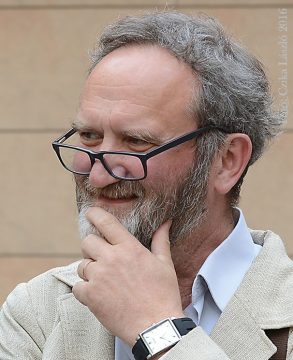Balázs Fűzfa, Literary Critic, University Associate Professor (University of West Hungary, Szombathely)
His area of speciality is the literature of 19th century Hungary, the programme of experience centred design of teaching literature, as well as the work of Géza Ottlik. He is the initiator and organizer of researches, readers’ camps, and literature popularisation programmes regarding mainly the work of Dániel Berzsenyi, Géza Ottlik, and Sándor Weöres, as well as the modernization of teaching literature. Editor of scientific publications, book series, the Editor in Chief of the magazine BÁR, the Director of Savaria University Press. His programme called ‘The 12 Most Beautiful Hungarian Poems’ and his literature student’s books with his new approach have become well-known abroad as well.
The issue regarding regionalism has come up recently, namely whether it plays a more important role in shaping the history of literature than it is estimated for the first glance. That means, that not only the author or the circumstances of the creation of the piece and its plot define the sphere of regionalism, but the given work possesses such features that can only be formulated on the given spot, or the author had to possess the relationship system of reality-referentiation attributed to the given area.
Around the 1920s the first modellisation of the modern figurative language, and the basic pieces were born along the Amber Route, in the great literary region from Duino (Rilke), and Triest (Joyce), through Szombathely (Joyce) and Kőszeg (Ottlik) to Vienna (Musil) and even Prague (Kafka) (Duino Elegies, Ulysses, School on the Border, The Man without Qualities, The Trial, etc.).

